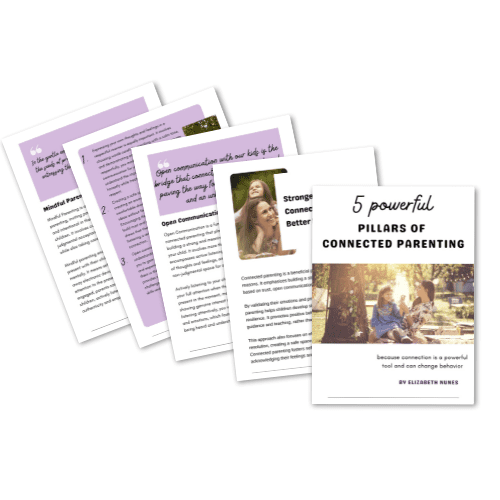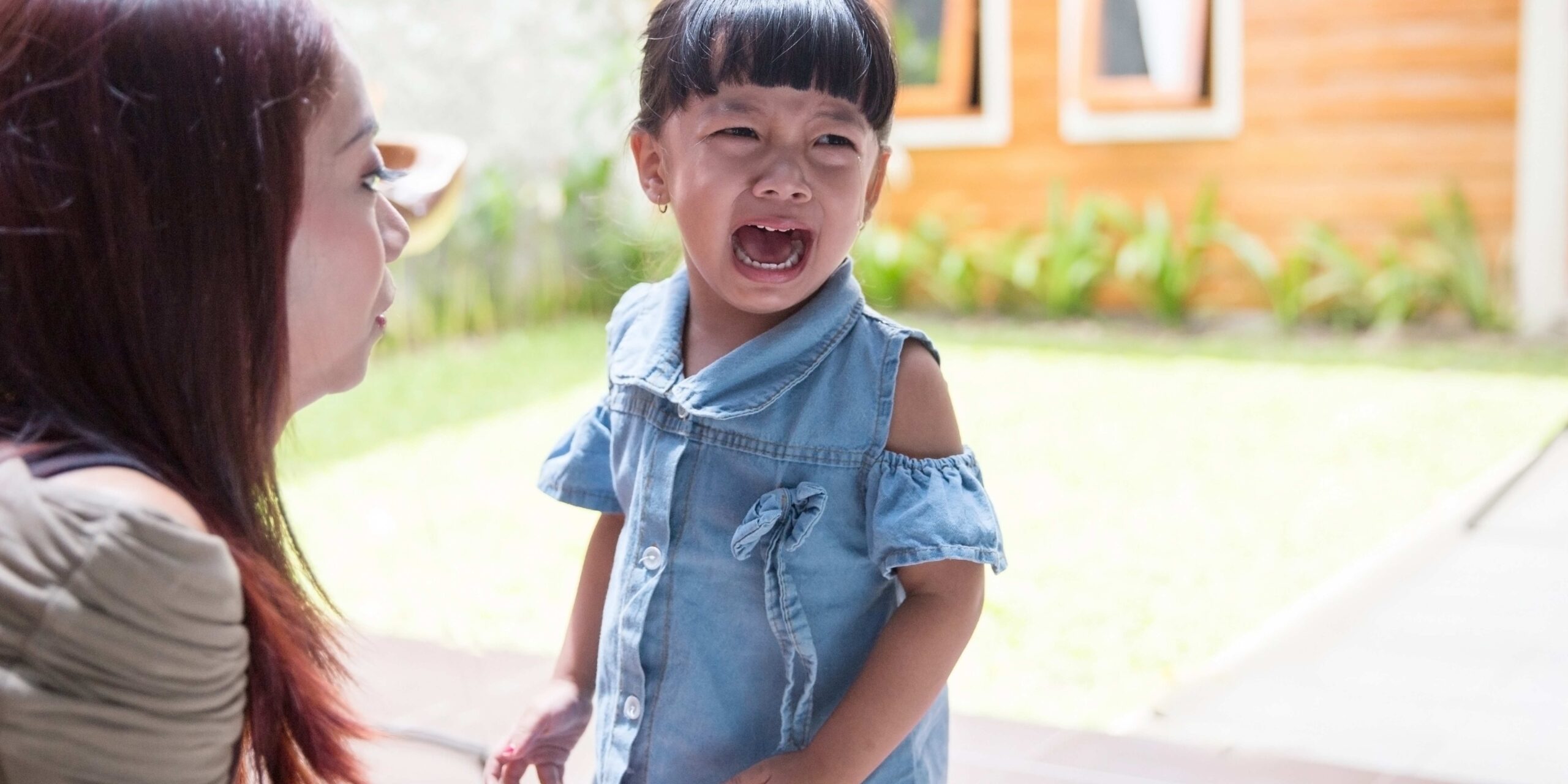Tips for Handling Another Parent Yelling at Your Child
As a parent, it’s difficult to watch someone yell at your child. Whether it’s another parent, a teacher, or someone else in a position of authority, it’s natural to want to protect your child and make sure they feel safe and respected.
However, it’s important to handle the situation in a calm and collected manner. Reacting with anger or defensiveness can escalate the situation and make things worse for everyone involved.
In this blog post, we’ll discuss some tips for handling another parent yelling at your child. These tips can help you stay calm, set boundaries, and address the situation in a respectful manner.
By using these strategies, you can protect your child’s well-being while also modeling positive conflict resolution skills.
This post may contain affiliate links. Full privacy policy and disclosure here.

Stay calm and collected
When another parent is yelling at your child, it’s natural to feel defensive, angry, or upset. However, reacting with these emotions can escalate the situation and make it more difficult to resolve. Staying calm and collected is important in order to model positive conflict resolution skills for your child and to de-escalate the situation.
- Deep breathing exercises: Taking deep breaths can help slow down your heart rate and calm your nerves. Try inhaling deeply for a count of four, holding for a count of four, and exhaling for a count of four. Repeat several times until you feel calmer.
- Positive self-talk: Remind yourself that you are capable of handling the situation calmly and that you are doing the right thing by protecting your child. Repeat positive affirmations to yourself, such as “I am calm and in control.”
- Counting to 10: If you feel yourself getting upset, take a moment to count to 10 before responding. This can give you time to collect your thoughts and respond in a calm and rational manner.
Use a calm and respectful tone
The way you speak to the other parent can have a big impact on how they respond to you. Using a calm and respectful tone can help de-escalate the situation and make it more likely that the other parent will listen to what you have to say.
- “Excuse me, can we talk about this calmly?”: This statement acknowledges that the situation is tense and suggests that you would like to work towards a resolution.
- I understand your concern, but please don’t yell at my child.”: This statement acknowledges the other parent’s concerns but sets a boundary around acceptable behavior. It also models appropriate behavior for the other parent.
Set boundaries
Setting boundaries is important when someone is yelling at your child. It communicates that you have expectations for how your child should be treated and can help prevent the situation from escalating further.
- “I appreciate your input, but please don’t yell at my child.”: This statement acknowledges the other parent’s concerns but sets a boundary around acceptable behavior.
- I understand you’re upset, but please don’t speak to my child in that way.”: This statement sets a clear boundary around how your child should be spoken to and models appropriate behavior for the other parent.
Address the situation with the other parent
Addressing the situation with the other parent can help prevent future incidents and ensure that your child is treated with respect. It also models appropriate conflict resolution skills for your child.
- Approach the other parent calmly and respectfully: Avoid getting defensive or confrontational. Instead, approach the other parent calmly and respectfully, and try to understand their perspective.
- Use “I” statements instead of “you” statements: Using “I” statements can help avoid placing blame and can make the other person more receptive to your message. For example, “I feel upset when you yell at my child” is more effective than “You’re making me angry by yelling at my child.
- Offer a solution or compromise: Instead of focusing on the problem, try to offer a solution or compromise that addresses both parties’ concerns. For example, “I understand you’re upset, but can we talk about this calmly and find a solution together?”
Teach your child coping strategies
Teaching your child coping strategies can help them handle difficult situations, including when someone is yelling at them. Coping strategies can help your child stay calm, feel in control, and respond in a respectful manner.
- Deep breathing exercises: Deep breathing can help calm the body and reduce feelings of anxiety or stress. Encourage your child to take deep breaths in through their nose and out through their mouth.
- Positive self-talk: Encourage your child to use positive self-talk, such as telling themselves “I can handle this” or “I am strong.”
- Walking away from the situation: Sometimes the best way to handle a difficult situation is to remove yourself from it. Encourage your child to walk away from the situation if they feel overwhelmed or unsafe.

Get Your Free Download
References
- Effective Discipline to Raise Healthy Children: This paper emphasizes that aversive disciplinary strategies like yelling at or shaming children are minimally effective in the short-term and not effective in the long-term. It suggests positive and effective parenting strategies for discipline at each stage of development (Sege & Siegel, 2018).
- Neighborhood Correlates of Cultural Differences in Perceived Effectiveness of Parental Disciplinary Actions: This study found variations in attitudes regarding child discipline by race/ethnicity and neighborhood characteristics. It highlights how community context and cultural heritage shape attitudes about discipline, including yelling and threatening (Caughy & Franzini, 2005).
- Child-rearing violence: This research reveals that verbal and physical discipline often co-occur and are transgenerational. Parents who were frequently yelled at as children are more prone to yell at their own children. However, many can break this cycle, especially those who consider themselves to have been abused (Hemenway, Solnick, & Carter, 1994).
- Communicating with the uncommunicative: music therapy with pre‐verbal adults: Although focusing on pre-verbal adults, this paper indicates that vocalizations like yelling are often used to express emotions but aren’t always received as communication. This could provide insights into how yelling is perceived and processed in stressful interactions (Graham, 2004).
- Conservative Protestant Child Discipline: The Case of Parental Yelling: This study explores the rates of parental yelling in conservative Protestant families, highlighting the role of religious and psychological rationales in child-rearing practices. It suggests that conservative Protestant parents are less likely to yell at their children, offering a perspective on different parenting styles (Bartkowski & Wilcox, 2000).
- Changes in Child Discipline Strategies in Iran During the Outbreak of COVID-19: This research investigates changes in disciplinary strategies, including an increase in yelling, during stressful times like the COVID-19 pandemic. It underscores the importance of understanding how stress affects parenting behavior (Farahzadi, Maarefvand, & Poursaadati, 2022).

